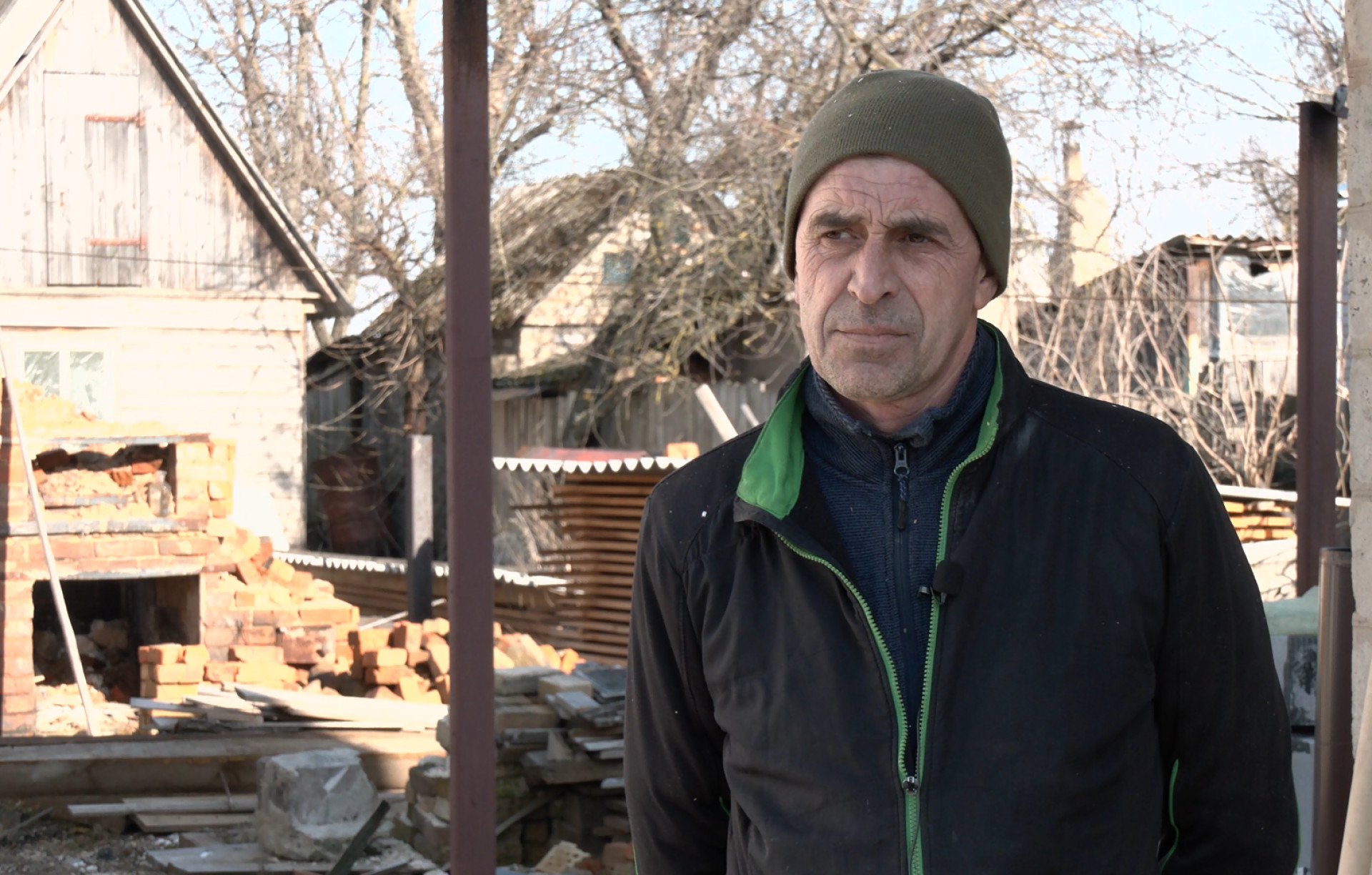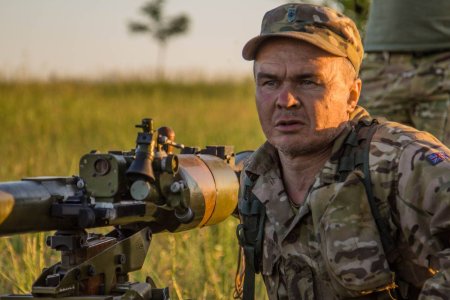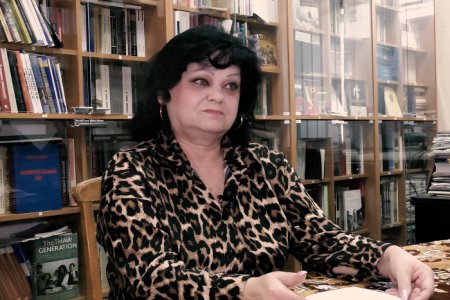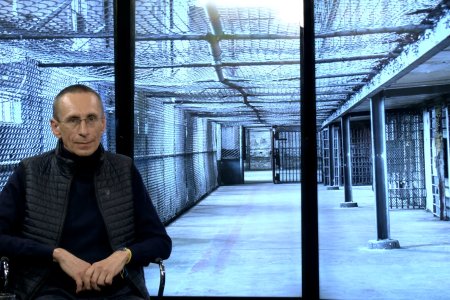I was a rescuer, firetruck driver, and squad commander. When the war began, I was already a pensioner. I didn’t think Russia could attack us. I didn’t know it would be so cruel.
On February 26, five hundred pieces of equipment were stationed near Borodianka: tanks, infantry fighting vehicles, armored personnel carriers, vehicles, and tankers. They [the Russians], it seems, entered Borodianka on the 30th. They stretched from Borodianka and almost to Kyiv, to Stoianka for sure. Of course, ours began to destroy them little by little. On March 8, our military came in. By that time, I was already evacuating people on a school bus. On the eighth, I boarded the children with the women, but then I dropped them off because the command came that our troops would enter. When ours drove through the village along Independence Street, I loaded the people again and took them to Myhalky.

When I made my way, it was already tough here. During the first trip, I saw tanks coming towards me. But, thank God, it was ours, the Ukrainians, who were moving. I felt better, of course. And so, you drive, you look, there is a convoy of 10 cars, and everyone is afraid to go. I overtook this column and drove on. People flocked to Zahaltsi from Borodianka, Druzhnia, and other evacuation villages. People made their way and gathered here while there was no severe fighting. It started on March 8th, and the Russians began hitting us. And there were also air raids.
At 5:10-5:20, the planes dropped four bombs. The substation was blown up, and two bombs fell. And another bomb was thrown at the kindergarten. One exploded, but the second did not. The Russians entered here on March 20.

Houses began to burn on the 12th. They began to bomb brutally, and by the 17th, 17 houses were no longer on our street. The daughter, who left, called, and the wife, who went to Kyiv on February 24, also called; they said to leave but felt like a hero!
When the house was still intact, a neighbor’s home was hit, and slates fell from my garage. I fell near the garage and lay there. Then I felt a little jittery. I saw another hit in the village center, and on the 15th, I moved to the neighboring village of Potashnia with my mother. Then, Ukrainian troops entered Potashnia. On the 19th, the Russians began shelling it too. The Russians dropped phosphorus bombs, and 33 out of 150 houses were completely destroyed.

On March 19, I moved to the village of Nova Buda. In the morning, we woke up to the fact that our village was being brutally bombed. I went onto the balcony and looked through the forest — there was a black column of smoke. I said the town is no longer there, and we must run far away; terrible things are happening here.
I know that here in the village, one man was tortured. Forty stab wounds and cigarette butts were extinguished in the eyes. He had a wooden house with a stove, and it was warm. It was winter, and some frosts went down to 12 degrees. Our soldiers warmed themselves with him. They gave an old man cigarettes, well, not old yet, only 60 years old. When our people left the village, the Russians came in and saw ammunition, maybe some cartridge case, perhaps a cartridge, or something else lying around. They went inside and thought that he was a Ukrainian fighter. There were no people in that sector, and they tortured him. They tortured him until he died. Two more women were shot. And one guy was wounded, but they saved him. I heard about this case but can’t vouch for its authenticity.
It turns out 240 houses were destroyed, seven hundred were damaged, and we have about 1,300 homes in the village. All I have left of my garage are the walls, and those are dilapidated. I started by replacing the window and the roof so that I could somehow live. There was a summer kitchen and a barn here, but everything was completely burned down. There was a house here, but it’s no longer there.

Where did it land? That’s where the neighbor’s fence is. There, a neighbor’s dog was stunned, and he nursed him for more than a week. I was just going out when I heard a whistle. Well, where to hide? I fell under the old door and stayed there. All I heard was “boom”! And the slates flew. I was getting up when I heard the whistle again. The second time — “boom”. I ran out of the yard and kept running to get away. I didn’t even see what was happening there.
On the 15th, I moved to Potashnia, to my mother’s village. I arrived on the 17th and broke through at my own risk. I wanted to bring something, but, you see, I saved the dog. I tried to save him because I abandoned him when this happened. However, my brain started working slowly, and I realized I had left the animal in the enclosure. I had to pick him up.
When the Russian troops retreated, I returned on April 3. People said that in Potashnia, my uncle burned in his house. And I came to bury him. So, such a picture emerges. There are ruins — both in Potashnia and Zahaltsi. It was impossible to drive down the street here. Maybe in first gear because you immediately catch debris when you give it gas.
I don’t want to talk smack, but I would just... I would like them to experience what I experienced. I don’t even want to wish for the worst. Let the Russians experience everything firsthand and how it all transpires. What can I tell them? They are brutes, and that’s all.


